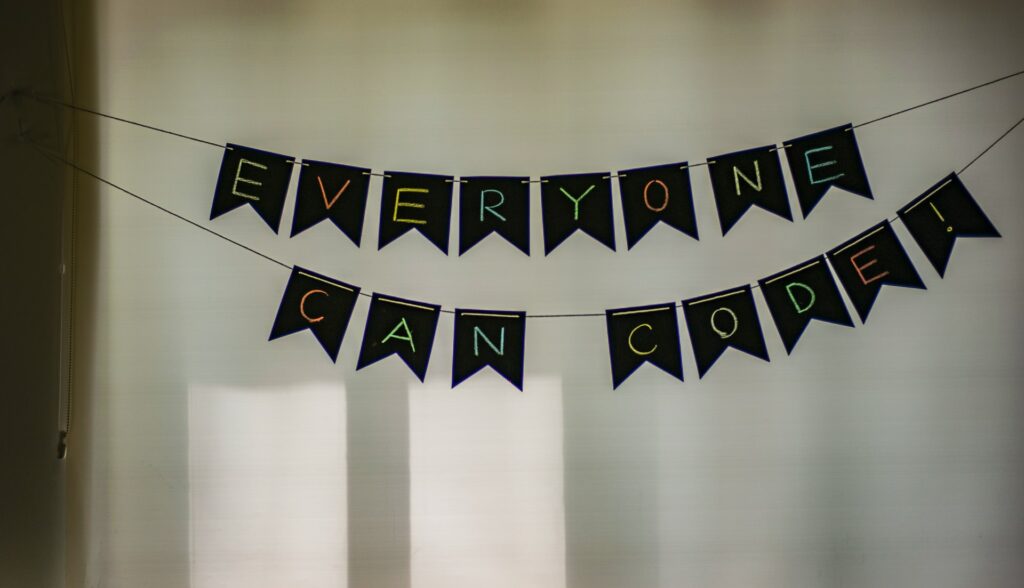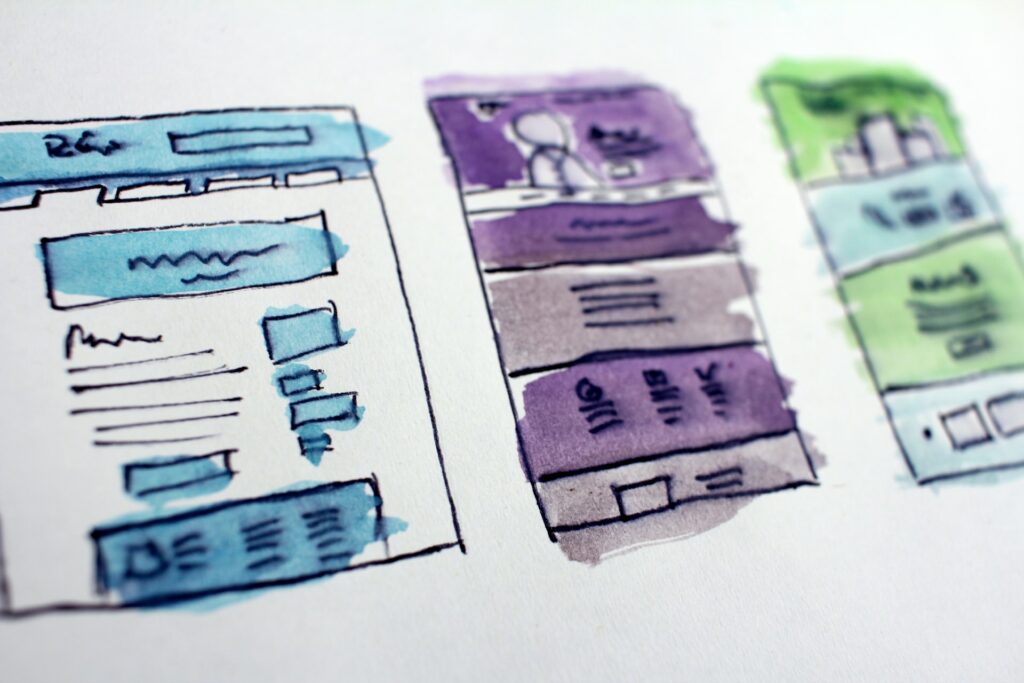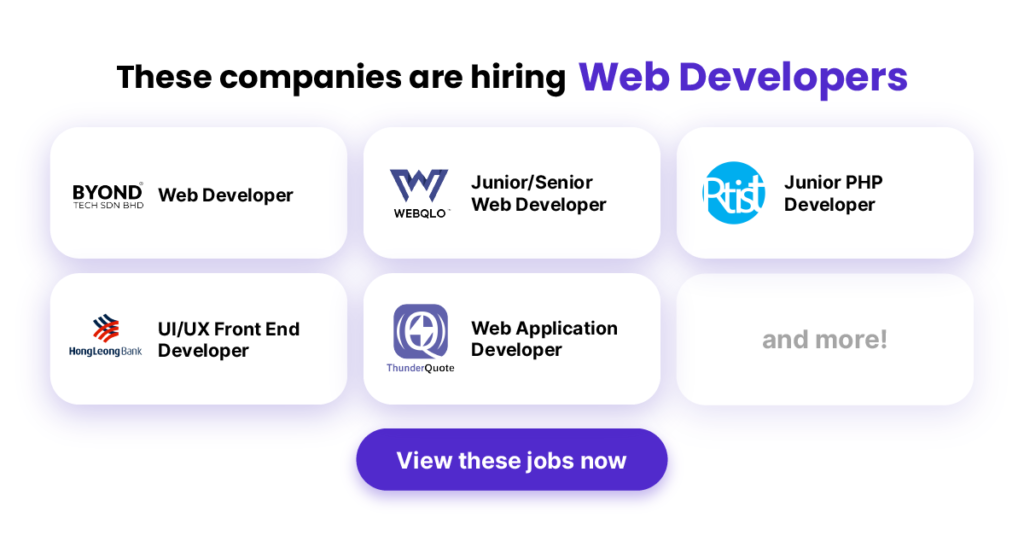Web development has grown significantly popular in the last decade, as more and more people live their lives online, businesses are doing all they can to keep up. This means there is no better time to pursue web development as a career than now.
Besides a promising career path, web development also offers the exciting challenge of adapting to ever-evolving technology.
This guide covers what you need to know about web development jobs – from what web developers do, skills needed, and where to get your qualifications when you don’t have a computer science degree.
What does a web developer do?

Web developers build, design and develop websites and web applications. This includes the home page designs, website layouts, and how they function.
A good web developer considers the audiences’ needs and user experience. They also offer seamless navigation while showcasing products or services in the best light.
Besides that, they use programming languages such as HTML, CSS and JavaScript to manage site functionality, integrate applications and security measures.
“Web developer” is a broad term that can be used to describe roles like front-end development, back-end development, full-stack development and UI/UX design. Because of this, web development offers a variety of career paths for people to explore throughout their careers.
What skills does a web developer need?

Generally, web developers will need a solid foundation on the basic programming languages:
- JavaScript
- HTML
- CSS
Technical skills needed to be a successful web developer are:
- Responsive design skills
- Testing and debugging skills
- Front-end and back-end basics
- Search engine optimization (SEO)
Soft skills are also crucial in the field of web development. Here are some that are often transferable from previous experiences:
- Creativity and problem-solving
- Resourcefulness and ability to research
- Attention to detail
- Strong communication skills
- A robust interest in technology and its development
- Logic and design thinking
- Ability to adapt to changes quickly
How do you become a qualified web developer?
Typically, entry to the web development field would require formal qualifications in Computer Science or Software Engineering. Acquiring the former degrees will give you the most direct entry to the field of web development and programming.
You’ll be pleased to know that it’s not the only available option. Web development requires very specific technical skills. Even so, informal on-the-job training and proof of proficiency can triumph over a lack of formal qualification.
Whether or not you choose to pursue tertiary education for the role, be prepared to keep learning as technology is constantly changing – and they change fast. There is always something new to adapt to and for many, is one of the most exciting aspects of web developer jobs.
If you don’t have a degree in Computer Science or Software Engineering, here’s what you can do to kickstart your career as a web developer:
1. Learn web development online for free
If you’re just starting, you may not be ready to invest in a paid course just yet. The good news is there are many free courses on the basics of web development if you know where to look.
Coursera
Coursera boasts a large selection of web development classes you can take. Since the courses are designed in partnership with distinguished universities and institutions, you can be sure you’ll be learning from the best.
Some courses are only accessible with purchase, but they still have a considerable array of courses you can take for free. These are some of our top picks:
- Introduction to User Experience Design (Beginner)
- Computer Science: Programming with a Purpose (Beginner)
- Web Development with Java Spring Framework (Intermediate)
Codecademy
Codecademy’s goal is to create new and interactive ways of learning, with a stylish and easy-to-use website aspiring web developers can appreciate.
Codecademy’s certifications are only available under pro-pricing, but the available free classes are enough to provide you with a solid foundation for web development. Get started with these free classes:
YouTube
YouTube as a platform shouldn’t be underestimated. Besides being completely free, there is value in learning from content creators who are web developers themselves, especially when personal experience and career tips are interwoven into their lessons.
For example, this video by Coder Coder is excellent for budding web developers just getting started.
2. No degree? No problem. Get certified online.
Getting a solid grasp of the basics of web development is a good first step. You’ll want to improve your credibility in the field next. For this, you can look into obtaining online certifications as your next career move.
Check out one of Hiredly’s trusted training providers, LEAD for your first few certifications. As a tech institute for Data Science, Digital Marketing & Full Stack Web Development, they offer an extensive learning experience and excellent credentials.
3. Learn quicker by joining bootcamps.
If expert guidance is what you need to build your confidence in web development, consider joining coding bootcamps.
Bootcamps can accelerate your learning and get you ready for a web developer career in record time. Usually held between 2 to 10 weeks, joiners can expect practical training that is intensive, immersive, and guided by mentors.
NEXT Academy

NEXT Academy is the first coding bootcamp in Malaysia to introduce the Silicon Valley-style bootcamp and is the most popular amongst aspiring Malaysian web developers.
Akademi GA
General Assembly is a pioneer in education and career transformation, and one of Hiredly’s training provider partners. Their award-winning curriculum promises an engaging learning experience and a high employability rate.
iKompass
iKompass offers top-rated courses put together by industry experts that aim to teach you skills and best practices in the shortest time possible. Get hands-on guidance and support that take you from beginner to web developer in just six weeks.
4. Pursue personal projects and build your portfolio.

Ask any web developer and they’ll tell you that the best way to hone your skills is to learn by doing.
Working on personal projects will help you build your portfolio. This portfolio will demonstrate your skills for job applications or opportunities to work on paid projects.
In your portfolio, be sure to include:
- Your contact details such as your name, email address, phone number and social media platforms you use to showcase your work.
- Samples of websites you have worked on. Show future employers or potential clients what you can do and the extent of your skills.
- Testimonials from previous employers or clients. Sometimes a reassuring recommendation is the last push needed to get you that web developer position.
Many established web developers also recommend picking up freelance projects to experience solving problems and catering to client briefs. This will give you a taste of what it’s like to work as a web developer and perhaps help you decide whether you see yourself working at a company or pursuing a career in web development as a freelancer.
===
Set on starting a career in Web Development? Whether it’ll be your first job or a career change, make sure your resume is up-to-date with the help of our resume checklist.
Then launch your career in Web Development with jobs on Hiredly!

